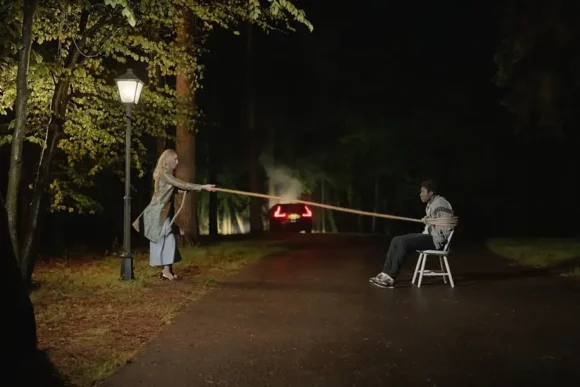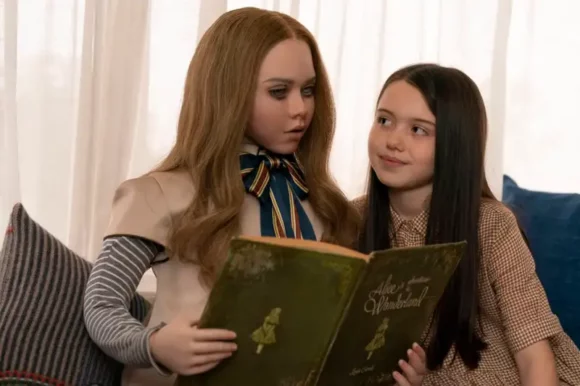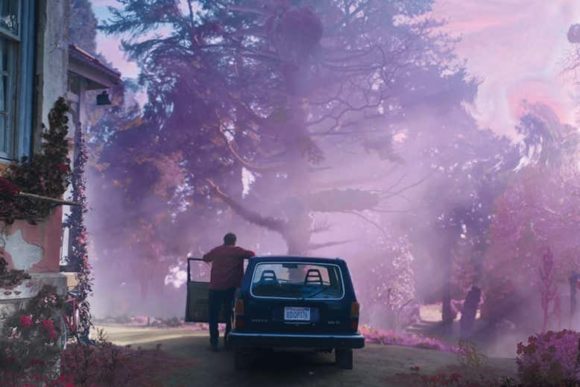Reading Killing the Dead by John Blair for the Telegraph, 13 November 2025
St Cuthbert lived on the island of Lindisfarne on a diet of raw onions and died (with what sense of relief we can only imagine) in 687 CE. Four centuries later his coffin was opened, and his revealed corpse looked for all the world like a living man. Some duly proclaimed a miracle, but archaeologist and medievalist John Blair can’t help wondering: “Might his lifelike corpse have raised concerns?”
Comprehensively surveying the world’s undead was, Blair says, a project he saved for his retirement. Killing the Dead speaks to a lifetime’s storing up of mischievous treasures; also to Blair’s sheer enjoyment now, that teeters often (and who can blame him?) on unholy glee. What’s not to love about discussions of China’s “lumpen corpses and lustful hyena-women”, or about a book with chapter titles like “Lying Undead in a Ditch: England, 700–1000”?
Dullards will call “cheat”, since the title mentions vampires while the book embraces all varieties of the undead. But be patient: Blair’s global history of the dangerous dead (restless dead, undead, revenant shroud-chewers — call them what you will) is structured to address this very point.
Blair reckons that vampires, commonly conceived, are a literary invention, and comparatively youthful. Our first true vampire novel is a pamphlet from 1600, now lost, featuring the widely florid tale of Johann Kunze of Bennisch.
Everyone knows that vampires are Slavic but, says Blair, “the intensity of a phenomenon at a late date does not prove that it existed from an early one;” also that historical discussions of the phenomenon “have hugely over-emphasized bloodsucking.”
Blair’s history begins around the 8th century BCE with the Neo-Assyrians, whose remarkably laid-back attitudes towards the restless dead found their way to Greece and from there to Rome, where they cross-fertilised with some Asian ideas (“veering between pathos and bawdy comedy”) about predatory female shape-shifters. These folkloric strains twisted and darkened as they head north, giving rise to some magnificent Icelandic monsters.
Scandinavian colonisation cast these “Viking-style revenants” across northern Europe, where they shaped beliefs in northern Germany, Poland, and Bohemia (witness “an intensive corpse-killing epidemic, which erupted during 1546–1553 in a series of small Saxon towns”). This lore then intensified and spread south-eastwards, eventually linking up with more oriental-flavoured Balkan beliefs. So while vampires are younger than we think, there’s no need for disappointment: their ancestry is much richer and more various than we ever could have imagined.
Some huge questions are being begged here, and Blair is assiduous in addressing them all. (Blair’s book’s over 500 pages long, and he wastes not a single one.) First and most important: are the undead a story we tell each other, or a real phenomenon?
For the phenomenon to be real, Granpa doesn’t actually have to leap up from his bier and chase us around the parlour. It would be enough that we shared some cognitive glitch that made us susceptible to belief in the undead. Perhaps we’re all inclined to see signs of life in post-animate matter. And it is true that corpses do not say still, they groan and fart, stiffen and flex and, when they finally decay, do so at rates that are far from normative.
These days we consider death a singular event — ironic, really, given how our medicine repeatedly brings us up against the processes of death. Earlier societies didn’t have quite so much understanding of coma, anoxia, brain death and vegetative states, but they steered much closer to reality (and offered infinitely more comfort to the bereaved) in viewing death as a process, not an event. “The cessation of breath, the laying-out, the liminal stage at the wake, the burial, and the ensuing physical decay are steps along a road that must be followed precisely,” Blair observes of the rites that grow up in these societies — the only wrinkle being, “if that journey is impeded, the implications can be horrifying.”
Except when it wasn’t. After all, the most memorable resurrected body of all belongs to a much-loved and still revered religious visionary who got up and left his tomb after actually dying. Solid enough — an animated corpse if ever there was one — Jesus Christ nevertheless also managed, in true vampiric style, to pass through the stone stoppering his tomb. No wonder some of the first Christians “found the bodily Resurrection problematic”.
Blair is less interested in picking holes in what people saw; he’s more interested in how people interpreted what they saw, and what this says about their ideas of life in general. In Shamanic societies, fluid spirits flow promiscuously in and out of matter: to be animated at all is to be possessed. Christians and Muslims pack the souls of the dead off to various divine resorts, so can only explain reanimation through the mischievous activities of unearthly (presumably devilish) agents.
Generally, though — and with the notable and quite niggling exception of the Resurrection myth — the phenomenon proves too slippery for dogma to easily attach itself: “One event gives rise to multiple folkloric forms,” Blair explains, “which, when reformatted by the observer… take on forms that we may not even recognize as the original event.”
In other words, whatever psychological universals underpin our experiences of the undead, they’re ever so quickly drowed out by all the inventive stories we spin around our experiences. Are the undead psychically real, or are they just an old wives’ tale, endlessly reglossed? The answer, frustrating as this is, is “Yes.”
A more productive question: what summons the undead? They get about a bit, it’s true, but they’re hardly an everyday occurrence. In the book’s single sophomoric moment, Blair says that their appearances are “triggered by attitudes, perceptions, and fears that are not automatic, but spring from social, economic, political, religious, and cultural variables.”
Don’t anyone panic: he’s quick to put flesh on these modish bones. Wars, plagues and religious controversies unsettle us enough that the walls between the living and the dead start to shiver. There’s also the well-documented abuse and tyranny dished out by Slavic matriarchs, right up until the early 20th century, to consider. Deliciously inconvenient, politically speaking, they have also generated the most recent outbreaks. The latest undead-mother-in-law-killing — a proper stake-through-the-heart affair — took place at Vâlcea, Romania, in 2019. Most vampires are a public nuisance, but undead babushkas are worse: they come after their own.
Ultimately (and somewhat incredibly) Blair’s history of the vampire provides inspiration and comfort. Digging up the dead and decapitating them with an iron spade is a gruesome business, for sure, but a sight less disgusting than treating a living human being the same way. Blair argues convincingly that corpse killings are prophylactic against the kind of mass hysterias otherwise burn witches or throw children into ovens. “Like other extreme rituals, it is distressing at the time but leaves people feeling good afterwards,” is Blair’s insouciant conclusion: corpse-killing is “mainstream”.
Blair leads us through innumerable vales of terror and out again, trembling, yet unharmed, and even enlightened, with the elan of Gene Wilder’s Willy Wonka (who, now I come to think of it, was another pretend retiree). No apologies — if I don’t deliver this crushingly obvious paean, who will? — Killing the Dead is a book to die for.






